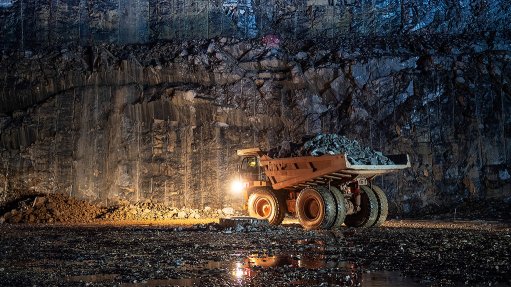
SUSTAINABLE MINING Gold Fields recognises responsible mining practices as being intrinsic to long-term sustainability
South Africa-headquartered gold major Gold Fields has underscored its commitment to Ghana with a proposal to create Africa’s largest gold mine through a joint venture (JV) between its Tarkwa mine, and the neighbouring Iduapriem mine, which is owned by gold miner AngloGold Ashanti.
It follows on significant investment totaling hundreds of millions of US dollars since Gold Fields first entered Ghana over 30 years ago.
If combined, the JV will extend the life of the operations significantly, with commensurate benefits to communities in Tarkwa, as well as to government.
This commitment by Gold Fields is underpinned by a development agreement with the Ghanaian government that regulates its investments in the Tarkwa and Damang mines. The agreement also provides stability as the Ghanaian government’s fiscal demands on the mining industry are rising.
The mining industry, through its Chamber of Mines, has been transparent about these concerns and how they could impact on the long-term investment in the sector, though Gold Fields corporate affairs VP Sven Lunsche is confident that solutions will be found.
Another key challenge facing large-scale miners, he explains, is the growing threat of illegal mining, known in Ghana as “galamsey”, which is “encroaching on many mine properties and has severe social and environmental impacts” on communities adjacent to mines.
However, government has responded to the issue through a combination of security actions to clamp down on illicit mining activities and by trying to formalise small-scale mining through community mining activities.
“These actions have yet to show meaningful results, though these measures need to be given time to make an impact.”
Gold Fields recognises responsible mining practices as “not just a moral obligation”, but as being intrinsic to long-term sustainability and financial success, adds Lunsche, noting that the company places a premium on environmental, social and corporate governance policies and associated programmes.
This is particularly relevant in developing countries, such as Ghana, where mining plays a critical role in the economic welfare of communities and has a significant socioeconomic impact in such communities.
Lunsche says the key economic impact that Gold Fields has had is through jobs and the procurement of goods and services in the region, which the miner tries to concentrate in the communities where it operates.
In 2022, the miner’s total value distribution in Ghana was $1.1-billion – comprising employment, procurement and taxes – making the company one of the largest employers in the country, with nearly 7 000 employees and contractors. Seventy-one per cent of these individuals reside in communities adjacent to the Tarkwa and Damang mines.
Gold Fields paid $243-million in taxes and dividends to the Ghanaian government in 2022, making it one of the biggest corporate taxpayers in the country.
Further, Lunsche highlights that mine host communities are pivotal stakeholders for the company, as their support is essential for the company's social licence to operate.
In this regard, the company has established stakeholder engagement plans and grievance mechanisms to address concerns and create meaningful value for these communities.
Environmental impacts, such as water management, tailings and emissions, are also rigorously monitored and addressed.
Tailings Management
Gold Fields' tailings storage facilities (TSFs) in Ghana adhere to industry-leading tailings standards and local regulations.
While largely conforming to the Global Industry Standard on Tailings Management (GISTM), Gold Fields acknowledges areas for improvement, particularly in community engagement, consultation and in addressing human rights risks in emergency-response scenarios.
The company continuously aims to improve its TSF management, including considering new technologies and engaging with downstream communities.
By 2030, the miner plans to convert Tarkwa’s TSFs from upstream to downstream tailings and to have achieved conformance to the GISTM for all its mines by 2025.
Gold Fields follows Ghana's tailings-related design guidelines, including Ghanaian regulation LI2182, and adheres to international best practices of organisations such as the International Council on Mining and Metals and the Australian National Committee on Large Dams, Lunsche concludes.